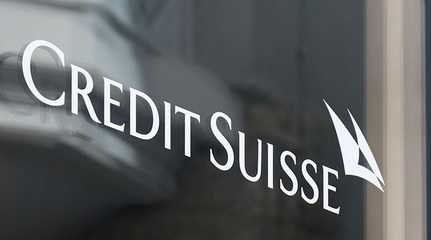
21 Mar 2023; MEMO: Saudi Arabia's investment in Credit Suisse is almost wiped out and is expected to lose $1.5 billion, the Wall Street Journal has reported. Crown Prince Mohammed Bin Salman directed the government-backed Saudi national bank to make the investment last year following an increase in the price of oil. He reportedly made the investment against the opinion of his advisers.
The Saudi investment in Credit Suisse was supposed to be the kingdom's entry into the global banking sector, cementing its emerging status as an investment powerhouse fuelled by oil. Now the investment is almost wiped out after Credit Suisse's emergency merger with the UBS banking group.
READ: Saudi Arabia to invest about $266bn for clean energy – Minister
Last week, Credit Suisse became the latest bank to suffer a sharp decline in confidence, sending its stock and bond prices tumbling; customers rushed to pull their money out. According to the WSJ the bank faced as much as $10bn in customer outflows every day last week. Regulators feared that the bank would become insolvent if not dealt with. Another Swiss bank, UBS, stepped in to bail out Credit Suisse.
The Credit Suisse collapse has also wiped out billions of dollars in investments by the Qatari sovereign fund and the Saudi-based Olayan family. The loss makes the Gulf states among the biggest losers from the decline in financial stocks since the collapse of the Silicon Valley Bank last week, which has had a knock-on effect on Credit Suisse.
It's thought that the current heavy losses are reminiscent of how Gulf states burned their investments in Western banks and hedge funds during the financial crisis in 2007 and 2008. The value of foreign assets in the portfolios of the Gulf Cooperation Council countries decreased in 2008 by $100bn to around $1.2 trillion.
READ: Rapprochement with Saudi, UAE led to a improved forex market
A Middle East economic analyst cited by the WSJ said that Saudi banks did not invest heavily in foreign banks until relatively recently. However, they now have the ambition to acquire a global banking share as part of a broader economic diversification agenda that includes increasing the investment portfolio of the Saudi sovereign wealth fund, the Public Investment Fund (PIF). The risk of investing in Credit Suisse was raised by some executives of the Saudi fund. Some are said to have raised legal questions and spoke of the potential for big losses in the future.
Ignoring the warning, the Saudi PIF facilitated contact between Credit Suisse and the National Bank of Saudi Arabia, which is the largest bank in the Kingdom and has close ties to the government. The Crown Prince gave the green light to the National Bank to invest in Credit Suisse, according to people close to the deal.
The Gulf region has deep ties with Credit Suisse. Gas-rich Qatar began snapping up shares in the bank during a period of volatile markets in 2008 and led a group of private investors who pumped billions of dollars into the company in the weeks following the collapse of Lehman Brothers. That led to a Qatari share worth more than $3bn.




